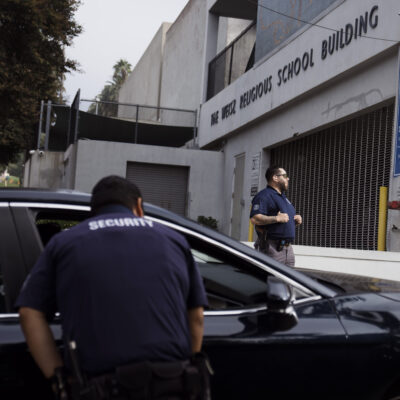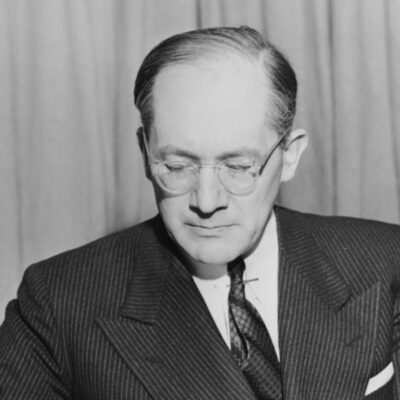Spiritualizing Job Loss

By Dr. Erica Brown
There is no shiva for job loss.
Yet, according to Jennifer Senior, in her New York Times op-ed, “More People Will Be Fired in the Pandemic. Let’s Talk About It,” (June 15, 2020) research suggests that adapting to unemployment may be more difficult than losing a loved one. It’s stark, but it makes sense. Being non-essential flattens self-worth. No matter how many times a boss or supervisor says it’s not personal, how can it not be? Senior reminds us that firing someone is “…often taken as a referendum on your character, your competence – and what kind of crisis of meaning it can create (What am I here for?), and how thoroughly depleting debt and chronic economic insecurity can be.”
So what do you say to a relative or colleague who’s just lost a job? What do you write to a friend who has just fired some of her most valued employees through no fault of their own? This is difficult emotional terrain.
Someone in his 60s who struggled through two major job losses calls it a trauma. Another described it as an unmooring, a sense of being lost and adrift. A young employee, who received extended furlough notices every few weeks until being finally let go, said the experience made her reconsider the quality of her work: “I was really proud of the work I was doing, and being laid off just showed me, that maybe my work wasn’t something to really be proud of.” A high-level manager who lost his job described a problem unique to nonprofit work: “When you work for a nonprofit, it becomes your whole life. I had a sense of mission and a vision, and I was trying to be helpful. I was all in. But when I lost that job, especially because it was so sudden, I was all out. My life had so much purpose … yesterday.”
A nonprofit leader who let go of respected professionals described it as a “gut wrenching” experience that causes caring CEOs to lose sleep. “Letting someone go is among the toughest responsibilities a CEO will ever face. We hire good people, we care about their growth and do our best to create an organizational culture of caring and of belonging.” Another said she’s never been involved before in a mass layoff. “It was the most difficult professional experience of my life, particularly because you know how challenging it will be for those who were let go to get a new job in this environment.”
It’s as if we’re living Yom Kippur’s central prayer – Unetaneh Tokef – months ahead of schedule, in the strange context of unemployment. Angels will be seized with trembling as they herald the day of judgment. We will pass before a shepherd in the guise of an HR director and a CEO who will “count, calculate, and consider the soul of all the living” and announce a verdict on our worthiness. Some will rest and some will wander; some will live in peace and some will be tormented. Some will enjoy tranquility, while some will suffer. Some will be impoverished and some enriched. A haunting reality stands before us as a Jewish community.
We are not immune – not immune to sickness and not immune to job loss. In the past few weeks, in particular, I’ve spoken with many Jewish nonprofit professionals who are waiting for the shoe to drop. And if you’re paying attention to the communal landscape, some of those shoes already dropped and landed with a heavy, unwelcome thud. There is a lot of emotional havoc, financial insecurity and loss of self-esteem on the way. We, as a community, have to confront this impending reality together with a combination of brutal honesty, exquisite compassion and no-nonsense practicality.
In the beginning of this dark mess, the conversations were different. They were about figuring out how to pivot, how to engage online, what to postpone and what to cancel. They were not about being cancelled. Funders stepped in with speed and generosity to bridge the gaps and keep organizations whole and afloat. These were uncertain but, ironically, more secure days, secure not in any existential sense but because we were able to muster the initial resources to run this tense marathon together, supported by good will and lots of creative thinking.
But the marathon hasn’t stopped; we’re all weary and tired. Even with current phased openings taking place across North America, nothing is going back to normal soon, and normal itself will be redefined in the months and years ahead. As the long-term implications become increasingly evident, our current limbo state will not continue.
The profound hurt and demoralization of unemployment should impel all of us – from senior executives to clergy to acquaintances – to think through how we can best support those who have been and will be unemployed in the weeks and months ahead. Here are some things to be mindful of in the process:
1) COMPASSION AND CONSISTENCY – Employees need the reassurance that there is nothing haphazard about an organization’s future strategy and nothing unnecessarily cruel about how it is executed. Don’t prolong bad news. Be consistent, straight and honest. When firing, even more than hiring, leaders need to uphold the Jewish value of chesed, loving-kindness. If ever there was a time to bring your soul to work, it is now. Even so, we need to acknowledge that there is no best practice for the worst news, no way to soften the blow entirely.
2) DIGNITY – Employees need to have a voice to feel dignified in this unimaginable unraveling of work as we know it. We need more information about the kind of support our employees require, and the best way to find out is to ask. With so much out of control, professionals should not feel that everything is determined on high without a say in the messaging or timing. This is especially necessary for loyal veterans in organizations who would otherwise have been happily employed for years to come.
3) SHARE THE PAIN – CEOs have to make HR decisions they never expected half a year ago. For the most part, however, they will still be employed when this is over and done. Taking serious and meaningful salary decreases for themselves when letting others go shows depth of character. One CEO said he did this to share the pain, even while acknowledging that the pain is, of course, not the same. Another observed that, “even when the news is delivered with care or a financial bridge, a senior professional is left empty and even devastated. Do those feelings matter to the colleague clearing out a desk and fearful about what comes next? Maybe. Maybe not.”
4) STEWARDING TALENT – We cannot afford to lose Jewish communal professionals. Job losses now may result in a seriously depleted field some years from now. Funders who provided remarkable support for organizations may need to pool resources to provide temporary financial assistance for individuals no longer in those organizations. Large umbrella organizations should collaborate to create a talent clearing house with their expansive networks. In the words of one CEO, “Losing a job to a pandemic or financial collapse should not, if we can stack hands as a community, mean losing a capable Jewish professional.”
5) MENTORING AND RE-TRAINING: There are a lot of retired CEOs, managers and ex-officio board presidents who have wisdom to share about resume writing, interviews and professional skills. This is a great time for organizations to provide online courses and one-on-one volunteer-based coaching. Someone who mentors in a job-search training program for older job seekers, shares his job loss story and keeps a close watch on those he trains: “I encourage them to email me once a week, describing their progress over the prior week and their goals for the next week. I comment as best I can on those emails, giving them advice or encouragement.”
6) SPIRITUAL/EMOTIONAL SUPPORT: Outside office walls or Zoom screens, our rabbis, mentors, and leaders also need to step in and serve those who are newly furloughed and unemployed with spiritual guidance, classes and support networks. Organizations laying off employees need to provide free counseling services. There is more than income at stake; job loss can have an enormous psychological toll. During the 2008 recession, someone who lost a job shared that his rabbi had not called once and had not spoken about these losses from the pulpit. Postscript: Sometimes the rabbi is the last to know.
7) DEPERSONALIZATION: Tony Lee, in “Getting Fired or Laid Off: A Survival Guide,” describes that people who experience unemployment can be, “overwhelmed by a crippling sensation of powerlessness, depression and fear.” He also acknowledges that after the initial shock, that the “opportunity to mull things over lets you rediscover your values and goals – or at last pry them loose for examination and reassessment.” One colleague said that what helped her manage this time most was disconnecting her competencies from her unemployment. That took time: “I think being able to separate those two things really helped me accept the news and move forward.” Another said that although it was very stressful, he focused on small wins. “It’s the small steps I can do each day or each week to try and move the situation forward, and try to not think too much about the disastrous consequences of long term failure.”
8) FRIENDSHIP: Many people don’t know what to say to a friend who has lost a job so they say nothing. Comfort and healing is not someone else’s job. We all hold a piece of it. No one person can be deputized to shepherd these losses. We all must grieve together and support each other through this inevitable reality. We need to call and write and cry and send virtual hugs. We also need to open our professional networks, make introductions and contacts. Someone who went through an 8 month job search felt fortunate that his spouse did not shame him for not finding work sooner. His faith and his warm community made a huge difference.
In a stunning and hopeful Rebbe Nachman story, a king wants to know if his son is ready to lead after him so he assigns a challenging task. Take a huge stone up a ladder to an attic. The son cannot budge the rock before him and has no clue how to proceed. When he gives up, the king advises him to break the stone into smaller, manageable pieces and carry each one up the ladder separately. Ultimately, the only way to face this tense and unhappy burden of unemployment as a community is to break apart the sorrow into smaller pieces and, together, share the heavy lifting.
Dr. Erica Brown is an associate professor at the Graduate School of Education and Human Development at The George Washington University and director of its Mayberg Center for Jewish Education and Leadership.

 Add EJP on Google
Add EJP on Google









